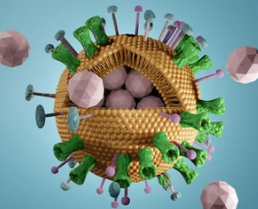Infectious diseases are diseases caused by the invasion of pathogenic microorganisms including bacteria, viruses, and fungi. On course of an infectious disease, the immune system produces bulks of antibodies through immune responses to attack the invaders, remove foreign substances from the body, and protect the organism from infection. When immunity is compromised, minor infections can cause disease and jeopardize health. The development of anti-infectious-disease-specific target antibodies is critical. Based on the professional hybridoma platform and phage display platform, Creative Biolabs provides professional anti-infectious-disease-specific target antibody development—part of our custom antibody production services for your research projects.

The detection of pathogenic microorganisms using antibodies is a well-established method. Consequently, the detection of infectious diseases by antibodies enables quicker identification of the type of pathogenic microorganism. Each pathogenic microorganism carries unique genetic material, and thus the development of antibodies targetign specific proteins or even the pathogenic microorganism itself can effectively identify the viral species.
A range of antibodies have been developed against various disease-causing microorganisms. For example, there are antibodies against adenovirus, bovine papillomavirus, canine microvirus, cytomegalovirus, and hepatitis virus. Hepatitis virus infection, if not controlled in time, increases the chance of liver cancer. Currently, only about 1% of bacteria encountered by humans can cause disease, but bacterial infections still have different impacts on human health. Bacillus anthracis antibodies, Chlamydia trachomatis antibodies, Clostridium perfringens antibodies, and E. coli antibodies have been developed for the rapid and effective detection of bacterial infections. In addition, a number of antibodies for the detection of parasitic and fungal infections have also been developed.
Using antibodies to treat infectious diseases is an even more important therapeutic tool, as antibodies can inhibit the infection by a variety of means. Take viral infections as an example. First, antibodies prevent the viral glycoprotein of enveloped viruses or the protein shell of envelope-free viruses from binding to the host cells, thereby inhibiting the viral replication cycle. The interaction of viral spines with ACE2 can be blocked by antibodies targeting the spine receptor binding domain, thus inhibiting viral infection. Antibodies that bind to the complement protein C1q or FcγR on leukocytes can also fight viral infections and lead to direct lysis of the virus and/or infected host cells. Antibodies can also promote or induce phagocytosis or cause the release of toxic chemicals, such as cytokines or reactive oxygen species. In rare cases, suboptimal binding of antibodies to viral particles can promote viral pathogenesis through an antibody-dependent enhancement process in which FcγR recognition of virus–antibody complexes can facilitate viral entry into host immune cells.
Anti-infectious-disease-specific target antibodies have been shown to play an important role in the diagnosis and treatment of many infectious diseases. Based on our extensive hands-on experience, Creative Biolabs would be pleased to share our knowledge and experience related to anti-infectious disease-specific target antibodies and tumor-specific target antibodies with you to help your research run smoothly.
All listed services and products are For Research Use Only. Do Not use in any diagnostic or therapeutic applications.